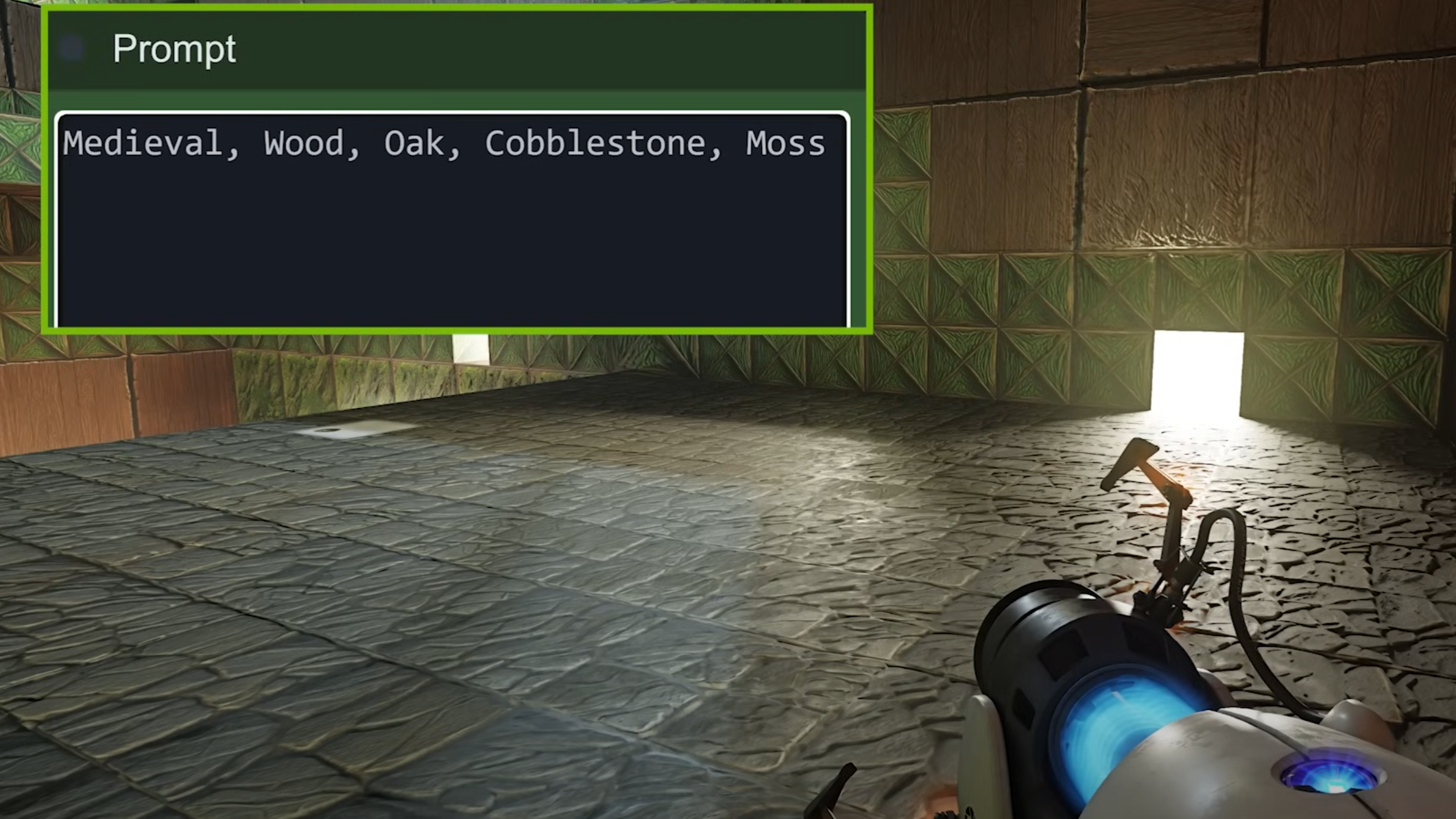Nvidia's RTX Remix goes open source —chipmaker adds Rest API to interface with ComfyUI for AI remastering or generating new graphics in real time
RTX Remix uses generative AI to become more ambitious than ever and open its doors.

Get Tom's Hardware's best news and in-depth reviews, straight to your inbox.
You are now subscribed
Your newsletter sign-up was successful
Nvidia's RTX Remix toolkit, which is used to mod DirectX8 and DirectX9 games with ray-tracing and remastered materials, was announced on June 2 to be going open source, with the Beta already available for download and the complete Toolkit set to be updated later in June. Besides the open source announcement, Nvidia also demonstrated RTX Remix's new functionality with Portal (the original game, not the pre-Remix RTX remaster) and demonstrated both upscaling and remastering existing texture work with physically based rendering (PBR) and allowing AI prompts to customize the look of the game even further.
With the open-sourcing of RTX Remix and the implementation of the new Rest API, it seems that Pandora's Box has finally been opened for easy, fan-made remasters of classic PC games still stuck in the pre-RT, DirectX8/DirectX9 era. Even if you have no practical experience at all and don't wish to alter the game you're playing fundamentally, the most basic form of RTX Remix can now seamlessly upscale all the existing textures in the game and apply realistic PBR lighting to those materials as well.
Open-sourcing RTX Remix may also improve the long-run look for AMD GPU users who want to participate in this fun, but for now, AMD GPUs will only be running RTX Remix titles in their completed forms. Nvidia's full RTX Remix toolkit for developing these remasters, or mods rely on a lot of proprietary Nvidia kit and, thus, is most likely impossible to use on AMD cards at all, at least not without lots of development effort from AMD and perhaps even Nvidia in conjunction.
Now, we can't ignore the elephant in the room here. Generative AI's adoption in the broader gaming sphere has been controversial, and for good reason! The push for generative AI and AI PCs has been highly scrutinized, particularly as it relates to game development, art, acting, writing, and other laborers. Fortunately, some companies, like Nintendo, outright reject it— and others, like Take-Two, recognize that while it can enhance some processes, its employees are still the priority if they want to turn around quality products.
In the context of RTX Remix, it's difficult not to be impressed by how the new REST API leverages ComfyUI and Stable Diffusion to remaster or even retexture a classic game near-instantly, with only a text prompt. The long-term ethical ramifications await to be seen, but for now, this serves as a fascinating proof-of-concept for how AI can enhance game dev and game modding workflows. It still feels a little slimy, though, considering how artists are currently suing Stable Diffusion for using their work to train AI models without permission.
Get Tom's Hardware's best news and in-depth reviews, straight to your inbox.

Christopher Harper has been a successful freelance tech writer specializing in PC hardware and gaming since 2015, and ghostwrote for various B2B clients in High School before that. Outside of work, Christopher is best known to friends and rivals as an active competitive player in various eSports (particularly fighting games and arena shooters) and a purveyor of music ranging from Jimi Hendrix to Killer Mike to the Sonic Adventure 2 soundtrack.
